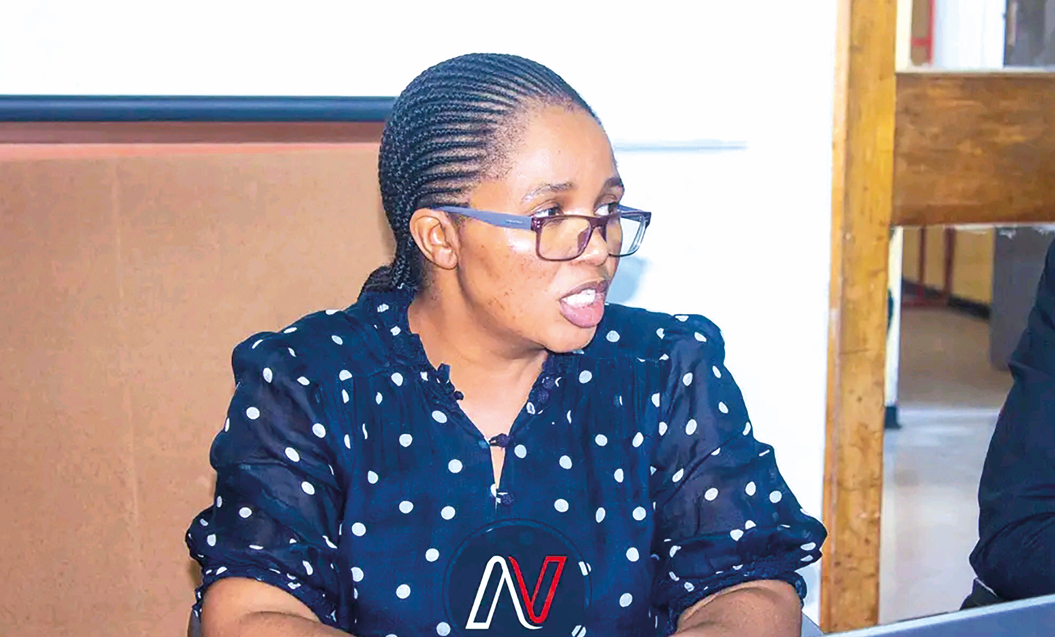The Council on Higher Education (CHE) has expressed concern over the rising number of forged qualifications, both from institutions in Lesotho and abroad, since the implementation of the Lesotho Qualifications Framework (LQF).
CHE’s acting Chief Executive Officer, Nthatisi Kosane, stated this week during a presser that the council has recorded several cases involving fake qualifications from both local and foreign institutions.
While most cases in Lesotho involve counterfeit degrees from the National University of Lesotho (NUL), Kosane cautioned that other institutions are likely facing similar challenges.
She said that CHE has identified several individuals implicated in qualification fraud.
These include a doctor from the Democratic Republic of the Congo (DRC) working in Lesotho, a Mosotho claiming to have studied in South Africa and currently employed in a government position, and another Mosotho who submitted a fraudulent qualification in an application for government employment in Lesotho
Kosane confirmed that the police are handling these cases, with two specific investigations currently underway: one involving a person who studied in Lesotho and is now working in South Africa, which is being handled by the South African Police Service (SAPS), and another case of a local individual who applied for employment in Lesotho using a fraudulent qualification.
To verify qualifications, CHE uses two methods: physical applications and online verification through the Lesotho Qualifications Management Information System (LQMIS).
Dr. Molise Nhlapho, Lesotho Qualifications Officer, explained that evaluation and verification are crucial in maintaining the credibility of Lesotho’s education system.
Evaluation assesses qualifications in the context of their country of origin, determining their equivalence to local qualifications under the LQF.
Verification, on the other hand, confirms the legitimacy of an award by verifying the accreditation of the institution, the qualification, and the authenticity of the qualification holder.
“The LQF, approved by Cabinet in June 2019, is a ten-level framework ranging from Basic Education (Level 1) to PhD (Level 10). CHE is mandated to implement the LQF by registering all local qualifications, verifying both local and foreign qualifications, evaluating foreign qualifications, developing a National Learner Records Database, and creating policies for effective implementation,” Nhlapho said.
In August 2022, the Ministry of Public Service announced plans to enhance the recruitment process to prevent negligent hiring, which could lead to government liabilities.
Citing Section 8(1) of the Public Service Act, read with Regulation 31 of the Public Service Regulations of 2008, the ministry emphasised the need to verify that job applicants are the legitimate holders of the qualifications they present.
“It is against this background that the government has decided to require all individuals interested in applying for government jobs to verify and evaluate their qualifications. This measure ensures merit-based hiring and prevents the appointment of candidates with fraudulent qualifications,” the ministry stated.
From September 1, 2022, all applicants for positions in Lesotho’s public service were required to submit a copy of their qualifications vetted by the Council on Higher Education (CHE).
“This requirement applies to all applicants, including graduates registered for placement by the Ministry of Public Service, current public servants seeking senior positions within government ministries, departments, and agencies, as well as all new job seekers applying for public service positions,” the ministry added.
To regulate qualifications in the country, the government, through the Ministry of Education and Training, developed the Lesotho Qualifications Framework (LQF) in 2019.
The LQF is an integrated system covering all qualifications, including basic education, technical and vocational training, academic degrees, professional development awards, and partial qualifications.
The framework defines and standardises qualifications, provides clear pathways for learners, and establishes guidelines for registering, verifying, and evaluating both local and foreign qualifications.
Additionally, the LQF enhances the mobility of students and graduates within Lesotho and internationally by ensuring the comparability of local qualifications with global standards.

Ntsoaki Motaung is an award-winning health journalist from Lesotho, specializing in community health stories with a focus on sexual and reproductive health and rights, as well as HIV. She has contributed to platforms like “Be in the KNOW,” highlighting issues such as the exclusion of people with disabilities from HIV prevention efforts in Lesotho.
In addition to her journalism, Ntsoaki serves as the Country Coordinator for the Regional Media Action Plan Support Network (REMAPSEN). She is also a 2023 CPHIA Journalism Fellow.








